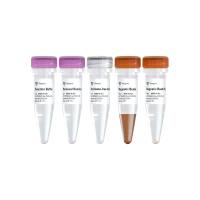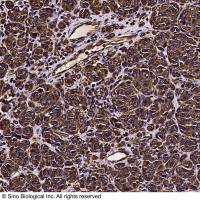Antisense oligonucleotides made of 2′-O -alkyl RNA are useful reagents for the study of the structure and function of ribonucleoprotein (RNP) particles. The nuclease resistant properties of these oligonucleotides, coupled with their ability to form specific and stable hybrids with targeted RNA sequences in crude cellular extracts, makes them well suited for applications involving the biochemical characterization of RNP particles. 2′-O -alkyl RNA oligonucleotides were initially used in “antisense masking” experiments to investigate the function of individual snRNA domains in the pre-mRNA splicing process (1 –3 ). The coupling of biotin residues to these oligonucleotides subsequently allowed their use as affinity “hooks” for the purification and removal of specific RNP particles from cellular extracts (2 ,3 ). The purification of specific RNPs by this methodology has resulted in the identification of new RNP proteins (4 –10 ). The ability to deplete targeted RNPs has allowed the function of individual snRNP and non-snRNP splicing factors to be investigated (11 –17 ). The antisense affinity technology is thus a powerful alternative to conventional chromatographic methods and, in principle, is applicable to any RNP particle that contains a specific sequence accessible to oligonucleotide binding.






